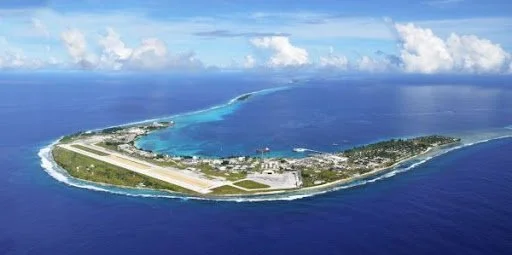Nuclear Legacy and Strategic Future: The Marshallese to Renegotiate their Relationship with the United States
U.S. Army Garrison Kwajalein Atoll. Photo: US Army
Talks over the renewal of the Marshall Islands Compact of Free Association– a military and economic agreement between the Marshall Islands and the US– have been stalled for months, leaving the US struggling to defend its interests in the Indo-Pacific region. The compact allows US armed forces to operate bases on the Marshall Islands and block other nation’s military activities in the area in return for the US providing security and funding for the Islands.
Democratic and Republican lawmakers in the House of Representatives have alerted the Biden Administration that they see the stalled negotiations as a threat to American strategic advantage in the region. They recognize Beijing's willingness to poach American allies with investment and access to technologies in exchange for loyalty and indifference towards Taiwan.
“It is distressing that these negotiations do not appear to be a priority… even as our international focus continues shifting to the Indo-Pacific,” wrote a bipartisan group of representatives. “China is all too ready to step in and provide the desperately needed infrastructure and climate resiliency investment that is sought by these long-time partners.”
The island chain between Australia and Hawaii has been critical about some aspects of its relationship with the United States. A territory occupied by the United States following World War Two, the nation of just above 50,000 has had consistent diplomatic ties with the American government under the Compact of Free Association since 1983. This agreement, which covers many channels of support and aid and access to the various atolls for US military testing and placement, has been a point of contention for the nation’s government.
A particular grievance for the Marshallese people is the lack of reparations for damages inflicted by US nuclear testing conducted in the area during World War Two. The most notable of these was the testing of the Castle Bravo thermonuclear device in 1954 on Bikini Atoll, which was the highest kiloton American-made bomb ever tested.
The nuclear fallout from the tests has led to ecological damage and health problems for the Marshallese. The United States has made little effort to clean up the 67 test sites, and an estimated 9% of cancers on the islands may be attributable to radiation exposure from nuclear tests.
The United States has given support in the form of a Nuclear Claims Tribunal, which doled out compensation for those who sustained radiological damages due to US nuclear testing. However, Chairperson of the Marshall Islands National Nuclear Commission Rhea Moss-Christian told Congress last year that the compensation was woefully inadequate. The tribunal gave $150 million to victims, and Moss-Christian said $23 million in personal injury awards and over $2 billion in property damages were left unpaid.
Natives of Bikini Atoll, scene of upcoming atomic tests, are evacuated to a different atoll by the US Navy, on March 14, 1946. Photo: Clarence Hamm/AP Photo
Lawmakers have expressed disappointment that the Biden administration has spent little time strengthening existing allies in the Indo-Pacific region, much less cultivating new ones. Indo-Pacific coordinator Kurt Campbell stated that the United States has "enormous moral, strategic, historical interests" in the region.
Many of the island nations caught between Chinese and American strategic maneuvering have undergone years of financial recession and coronavirus-related decline, providing an opportunity for the US to increase its influence and support in the region. But Campbell notes that “we have a very short amount of time…to step up our game across the board.”
The Marshall Islands’ Compact of Free Association is set to expire at the end of 2023. The Federated States of Micronesia and Palau also have Compact of Free Association deals with the US that are set to expire in 2023 and 2024, respectively.


